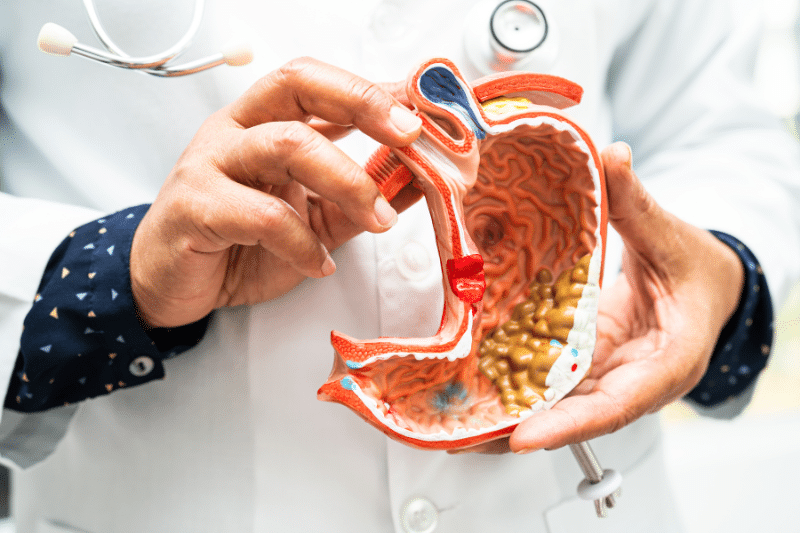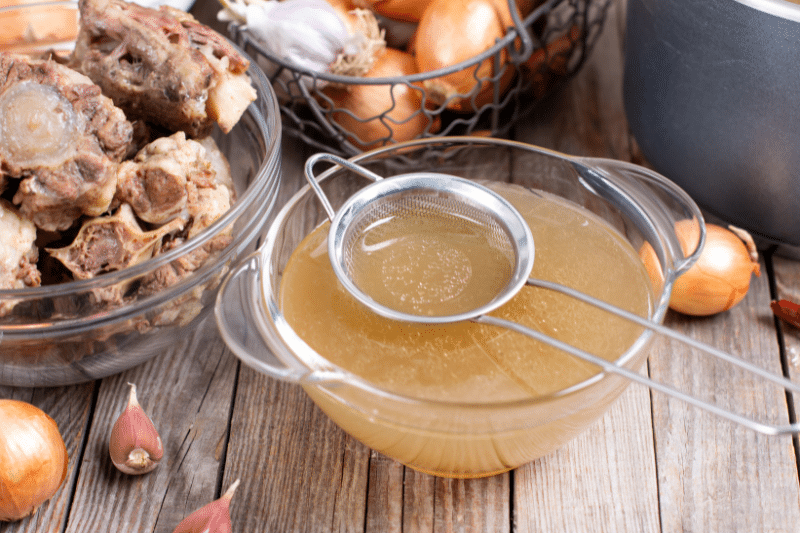Gastritis is a digestive condition that affects millions of people. Among home remedies, medications, and medical treatment, digestive endoscopy is considered to best therapy for gastritis.
In fact, 10-15% of the US population will experience gastritis symptoms at some point in their lives. Nonetheless, this guide will cover causes, common symptoms, medical treatments, home remedies, and long-term management for gastritis so you can get relief.
Therapy for Gastritis – Causes and Symptoms
What is Gastritis?
Gastritis is the inflammation of the stomach lining. But it can be acute, meaning it comes on suddenly and is short term or chronic, meaning it develops over time and can last for years. Subsequently, gastritis can affect anyone but is more common in older adults possibly. Because of the natural thinning of the stomach lining with age. Hence therapy for gastritis depends on the severity of the symptoms.
Accoding to American Gastroenterological Association study – atrophic gastritis can destroy stomach lining cells and lead to low vitamin levels and increased cancer risk.
What is the Main Cause of Gastritis?
Firstly, the main cause of gastritis is the infection by Helicobacter pylori (H. pylori) bacteria. As a matter of fact, this bacterium is present in almost 50% of the world’s population but not everyone infected will develop symptoms. Nevertheless, other causes of gastritis include:
Excessive Alcohol
Certainly, alcohol can irritate and wear away the stomach lining.
Long-term Use of NSAIDs
Nonsteroidal anti-inflammatory drugs like ibuprofen or aspirin can irritate the stomach lining if taken long-term.
Stress
Chronic stress increases stomach acid production which can cause gastritis.
Autoimmune Disorders
In some cases of stomach cancer, the immune system attacks the stomach lining.
What Are the Gastritis Symptoms?
Gastritis symptoms can vary in severity but often include:
Upper Abdominal Pain or Discomfort
In fact, this is the most common symptom and is usually described as a burning or gnawing stomach pain.
Nausea or Vomiting
Some people with gastritis experience a loss of appetite, which may lead to nausea.
Bloating
The stomach may feel full and tight, especially after eating.
Indigestion
Difficulty in eating foods digesting food is a common issue.
Loss of Appetite
Some people may not feel like eating due to discomfort.
However, in severe cases, gastritis can cause stomach bleeding. Eventually, this leads to symptoms like vomiting blood or passing black, tarry stools. Consequently, untreated gastritis can lead to peptic ulcers, which are serious conditions that can cause bleeding and scarring.
Therapy for Gastritis – Types and Diagnosis
Can Stress Cause Gastritis or Stomach Acid?
Indeed, stress is a known factor that can contribute to gastritis. When the body is under stress, it produces more stomach acid, which can irritate the stomach lining. Similarly, doctors refer to this condition as stress-induced gastritis. Particularly common in people who experience chronic stress or have recently undergone a traumatic event.
How is Gastritis Diagnosed?
Diagnosing gastritis typically involves a combination of:
Medical History and Symptom Review
Your doctor will ask about your symptoms, diet, medication use, and any history of alcohol consumption.
Physical Examination
This may include checking for tenderness in the abdomen.
Tests for H. pylori
This can be done through blood tests, stool tests, or a biopsy taken during an endoscopy. A breath test involves consuming a liquid that reacts with H. pylori bacteria, and then testing the breath sample for radioactive carbon to confirm infection.
Endoscopy
This procedure involves inserting a thin, flexible tube with a camera, known as an endoscope, into the stomach. To directly examine the lining of your stomach and take tissue samples if needed.
What Are the Different Types of Gastritis?
Gastritis can be classified into several types, including:
Acute Gastritis
Sudden onset, often due to irritants like alcohol or certain medications.
Chronic Gastritis
Long-lasting inflammation is often associated with H. pylori infection or autoimmune disorders.
Erosive Gastritis
The more severe form involves the wearing away of scar tissue in the stomach lining, which can lead to ulcers or bleeding.
Understanding the type of gastritis you have is essential for determining the best course of treatment.

Therapy for Gastritis – OTC Medications
What is the Best Medication for Gastritis?
The best medication therapy for gastritis depends on the underlying cause. Several over-the-counter (OTC) medications can help manage gastritis symptoms. Commonly prescribed medications include:
Antacids
Available in tablet form. These neutralize stomach acid and provide quick relief from pain and discomfort.
H2 Blockers
These reduce acid production in the stomach. Examples include ranitidine and famotidine.
Proton Pump Inhibitors (PPIs)
These are more potent than H2 blockers and work by blocking the enzyme in the stomach lining that produces acid. Examples include omeprazole and esomeprazole.
Antibiotics
If H. pylori infection is the cause, antibiotics such as amoxicillin, clarithromycin, or metronidazole may be prescribed.
Therapy for Gastritis – Medical Treatments
How Do Doctors Treat Gastritis?
Treatment for gastritis typically involves a combination of lifestyle changes and medication. For example:
Medications to Reduce Stomach Acid
These include antacids, H2 blockers, and PPIs.
Antibiotics
If an H. pylori infection is present.
Avoiding Irritants
Such as alcohol, spicy foods, and NSAIDs.
Dietary Changes
To reduce irritation and inflammation of the stomach lining.
Doctors also recommend managing stress through relaxation techniques, as chronic stress can exacerbate symptoms. In rare cases, further complications, such as bile reflux and gastrointestinal bleeding may arise, which might necessitate surgical intervention.
Can Antibiotics Be Used to Treat Gastritis?
Antibiotics are used to treat gastritis caused by an H. pylori infection. The treatment typically involves a combination of two antibiotics to ensure the bacteria are eradicated, along with a proton pump inhibitor to reduce stomach acid and promote healing. The treatment usually lasts for 10-14 days.
What Are the Side Effects of Gastritis Medications?
While gastritis medications are generally safe, they can have side effects. Common side effects include:
-
Antacids may cause constipation or diarrhea, depending on the ingredients.
-
H2 blockers can cause headaches, dizziness, and, in rare cases, confusion or depression.
-
Proton pump inhibitors’ long-term use may increase the risk of fractures, kidney disease, and vitamin B12 deficiency.
-
Antibiotics can cause side effects such as nausea, diarrhea, and allergic reactions.

Therapy for Gastritis – Home Remedies
Are There Any Natural Remedies for Gastritis?
Several natural remedies may help manage gastritis symptoms:
Licorice Root
Known for its soothing properties, licorice root can help protect the stomach lining.
Slippery Elm
Creates a protective layer in the stomach, which can reduce irritation.
Marshmallow Root
Has anti-inflammatory properties and can soothe the stomach lining.
Probiotics
Found in yogurt or taken as dietary supplements alone, probiotics can help restore the balance of good bacteria in the gut.
What Drinks Help Gastritis?
Drinks that help gastritis:
-
Chamomile tea for soothing
-
Aloe vera juice for anti-inflammatory properties.
-
Ginger tea for nausea reduction.
-
Water for hydration. That is key for overall digestive health and flushing out irritants.
What Foods Neutralize Gastritis?
Foods that neutralize stomach acid and help gastritis:
Rice
A bland food that is easy on the stomach.
Applesauce
Gentle on the stomach and can help soothe irritation.
Lean Meats
Chicken and turkey are easier to digest and less likely to irritate.
Vegetables
Non-acidic vegetables like broccoli, carrots, and spinach are gentle on the stomach and rich in nutrients that promote healing.
Therapy for Gastritis – Fast Relief
How Do I Get Rid of Gastritis Fast?
For fast relief from gastritis, consider the following tips:
Avoid Trigger Foods
Spicy, acidic, and fried foods can irritate the stomach lining.
Eat Smaller, More Frequent Meals
This can help reduce stomach acid production and prevent irritation.
Stay Hydrated
Drinking plenty of water can help flush out irritants and reduce symptoms.
Use Antacids
Over-the-counter antacids can provide quick relief by neutralizing stomach acid.
What is the Fastest Way to Treat Gastritis?
The fastest way to treat gastritis involves a combination of dietary changes, stress management, and medication. If symptoms are severe, seeking medical attention is crucial. In some cases, doctors may recommend IV fluids or other treatments to manage symptoms quickly.
What Foods Help Heal Gastritis?
Certain foods can help soothe and heal the stomach lining:
Bananas
They are gentle on the stomach and help neutralize stomach acid.
Oatmeal
A bland food that can help absorb stomach acid and reduce irritation.
Ginger
Known for its anti-inflammatory properties. Thus ginger can help reduce nausea and inflammation.
Yogurt
Contains probiotics that can help restore the balance of good bacteria in the gut.
Therapy for Gastritis – Lifestyle Changes
What Lifestyle Changes Can Help Prevent Gastritis?
Making certain lifestyle changes can significantly reduce the risk of gastritis. For example:
Quitting Smoking
Firstly, smoking can irritate the stomach lining and increase the risk of gastritis and ulcers.
Limiting Alcohol Consumption
Secondly, alcohol can erode the stomach lining and lead to inflammation.
Eating Smaller Portions
Thirdly, eating smaller meals can help reduce stomach acid production. As well as prevent irritation.
Maintaining a Healthy Weight
Lastly, individuals with a heavier body weight can have an increased risk of developing gastritis. Therefore, maintaining a healthy weight through diet and exercise can help prevent the condition.
Additionally, by making these lifestyle changes and being mindful of your diet, you can reduce your risk of developing gastritis and manage symptoms if they do occur.
Can Lifestyle Changes Help Gastritis?
Yes, lifestyle changes can make a big difference. Try:
Reducing Stress
Deep breathing, meditation, or yoga can help reduce stress and in turn, reduce gastritis symptoms.
Avoiding Alcohol and Tobacco
Both can irritate the stomach lining and worsen symptoms.
Eating a Balanced Diet
Whole foods, lean proteins, and plenty of fruits and vegetables.
Does Fasting Help with Gastritis?
Intermittent fasting, where you eat during a specific window and fast for the rest of the day, may help some people with gastritis by giving the stomach time to heal. However, it’s essential to approach fasting with caution and consult with a healthcare provider, as fasting may worsen symptoms in some cases.
What Drinks are Good for Gastritis?
In addition to chamomile tea, aloe vera juice, and ginger tea, other good drinks for gastritis include:
Bone Broth
Provides high doses of nutrients that help heal the stomach lining.
Coconut Water
Hydrates and provides electrolytes without irritating the stomach.
Green tea
Contains antioxidants that can help reduce inflammation, but it should be consumed in moderation as it can also contain caffeine.

What Can I Drink to Soothe Gastritis?
To soothe gastritis, you can drink:
Warm Water with Honey
Honey has antibacterial properties and can help soothe the stomach lining.
Peppermint Tea
Can help reduce nausea and soothe the digestive and gastrointestinal tract.
Fennel Tea
Known for its ability to reduce bloating and soothe the stomach.
Does Drinking Water Help Gastritis?
Yes, drinking water can help with gastritis by diluting stomach acid and flushing out irritants. Staying hydrated is essential for overall and digestive tract health and can help manage symptoms of gastritis.
Are There Specific Foods to Avoid with Gastritis?
Certain foods can worsen gastritis symptoms and should be avoided:
Spicy Foods
These can irritate inflammatory cells in the stomach lining and increase inflammation.
Acidic Foods
Such as tomatoes and citrus fruits, can increase stomach acid production and worsen symptoms.
Fried and Fatty Foods
These are harder to digest and can irritate.
Caffeinated Beverages
Coffee, tea, and energy drinks can increase stomach acid production.
Can Caffeine and Alcohol Worsen Gastritis?
Yes, both caffeine and alcohol can worsen gastritis symptoms. Not only that, caffeine stimulates stomach acid production. But also irritate the stomach lining. While alcohol can erode the stomach lining and increase inflammation.
How Does Diet Impact the Healing of Gastritis?
Indeed, diet plays a significant role in the healing of gastritis. Nevertheless, a diet rich in whole foods, lean proteins, and non-acidic fruits and vegetables can help soothe the stomach lining. As well as reduce inflammation. Besides this, avoiding trigger foods and incorporating healing foods into your diet can speed up the recovery process.

Therapy for Gastritis – Long-term Management
How Do You Get Rid of Gastritis Fast?
Getting rid of gastritis quickly involves a combination of lifestyle changes, dietary adjustments, and medication. Identifying and avoiding triggers, such as certain foods, alcohol, and stress, can help reduce symptoms and promote healing.
How Does Gastritis Go Away?
Gastritis can go away with proper treatment -Though involves a combination of medication, dietary changes, and stress management. Moreover, for some people, gastritis may resolve on its own. Especially if it is caused by a temporary irritant.
Such as a nonsteroidal anti-inflammatory drug (NSAID). However, chronic gastritis may require ongoing treatment and lifestyle changes to manage symptoms and prevent recurrence.
What is the Best Treatment for Severe Gastritis?
Certainly, the best treatment for severe gastritis typically involves a combination of medications and lifestyle changes. Although proton pump inhibitors (PPIs) are commonly prescribed medications. Especially work by reducing the production of stomach acid. Temporarily, helps protect the stomach lining and allows it to heal, particularly in conditions like gastroesophageal reflux disease (GERD) and ulcers.
In cases of H. pylori infection, a combination of antibiotics is necessary to eradicate the bacteria. Dietary changes, such as avoiding trigger foods and eating smaller, more frequent meals, can also help manage severe symptoms.

Can Gastritis Come Back After Treatment?
Yes, gastritis can come back after treatment, especially if the underlying causes are not addressed. For example, if H. pylori infection is not completely eradicated, or if irritants like alcohol or NSAIDs are continued, gastritis may recur. To further, prevent a recurrence, it’s essential to follow your doctor’s treatment plan, make necessary lifestyle changes, and avoid known triggers.
Therapy for Gastritis – Preventive Care
How Can I Prevent Gastritis from Recurring?
Preventing gastritis from recurring involves making lifestyle changes and being mindful of your diet. For instance:
Avoid Known Irritants
Stay away from alcohol, caffeine, spicy foods, and NSAIDs.
Manage Stress
Practice relaxation techniques such as meditation, deep breathing, or yoga to reduce stress.
Eat a Balanced Diet
Focus on whole foods, lean proteins, and plenty of fruits and vegetables.
Stay Hydrated
Drink plenty of water to help dilute stomach acid and flush out irritants.
Follow the Doctor’s Recommendations
If you have been prescribed medications, take them as directed. Furthermore, follow up with your healthcare provider as needed.
Gastritis is a common digestive condition that can cause discomfort and pain, but it is manageable with the right approach. Moreover, understanding the causes, symptoms, and treatment options is crucial for effective therapy for gastritis. From acute gastritis or chronic gastritis pain, making lifestyle changes, following a balanced diet, and using the appropriate medications can help individuals find relief and prevent recurrence.
Regardless, of suspecting or experiencing persistent symptoms, it’s important to consult with a healthcare provider for a proper diagnosis and therapy for gastritis. Furthermore, with the right care, and treatment plan individuals can manage gastritis and improve their digestive system and health.










